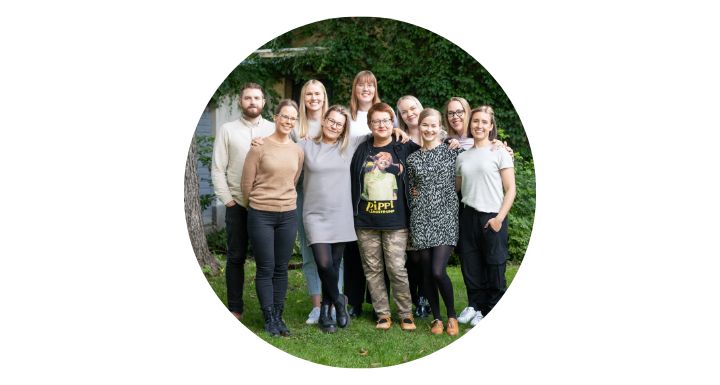From Graduation to the Professional World: Finding Your Pathway
Are you graduating this spring? Congratulations! Completing a degree is a significant achievement, and you’re now approaching the finish line.
It’s common to have uncertainties about the upcoming working life when graduation draws near. Certain fields offer a vast array of career paths, making it challenging to determine which ones truly align with your goals and interests.
Simply scrolling through job postings may not provide clarity, especially when the list of required skills feels never-ending. Don’t be discouraged, as it is rare to find an applicant who meets every single requirement.
Help, I don’t Know What to Do!
If you’re uncertain about your desired career path, it’s beneficial to take some time for self-reflection. Consider the activities you genuinely enjoy and what truly motivates you.
Reflect on your academic journey. Which aspects of your studies have you found most fulfilling? Are there specific courses or subjects that have resonated with you?
Can you identify any common themes or areas of interest? Is there a cause or set of values you’re passionate about advancing? Have you found enjoyment or a sense of flow in extracurricular activities or hobbies?
Additionally, your past work experiences can provide valuable insights. What tasks or responsibilities have you enjoyed? Do you thrive in organizing things, or do you enjoy engaging with new people? Have you excelled in meeting sales targets?
Examining these experiences can help you identify potential career paths that align with your interests and strengths.
Equally important is considering what you absolutely don’t want to do. You can narrow down options by understanding the types of tasks or work environments that won’t suite you.
Be an Expert in Your Own Expertise
And now, for the most challenging question – what do you excel at? According to our alumni, the ability to articulate their skills was the most influential factor in finding employment (Career Tracking Survey of the University of Turku in 2020).
The key to successful job hunting is being an expert in your own expertise. When one is uncertain about their own skills and lacks self-awareness, it tends to reflect in their job applications, leaving potential employers with doubts as well.
You can explore the dimensions of your expertise by considering different areas of your life. What skills have you acquired through your studies, work experience, hobbies, or other activities?
Another approach is to reflect on the areas where people often seek your assistance. Are you the go-to IT support person for your extended family, the event organizer for your group of friends, or perhaps the only one who understands IKEA’s cryptic assembly instructions? What kind of expertise and strengths do these roles imply?
Seeking feedback from others can also help you gain insights into your own skills. If those around you haven’t provided feedback, it’s worth asking for it yourself. In addition to your supervisor, you can seek feedback from colleagues and friends.
Identifying your skills isn’t always easy, and it’s beneficial to get back to it from time to time. Through your strengths, interests, and acquired expertise, you will eventually gain clarity about what you can offer potential employers.
Comparing Options
Once you have a clearer understanding of your strengths, skills, and career aspirations, you can shift your focus to the job market. Consider the types of roles where you can make use of your strengths and expertise. During this phase, adopting a research-oriented approach can be beneficial.
You can gather information about different job roles by:
- Browsing job advertisements
- Following various employers’ social media channels and websites
- Exploring the information available on the “toissa.fi” website. In addition to job descriptions and salary information, you’ll find interesting career stories there!
- Browsing the LinkedIn profiles of professionals in different fields. Start by exploring the profiles of UTU alumni.
- You can also conduct information interviews: reach out to individuals working in positions that interest you (e.g., through LinkedIn) and ask if you could interview them about their job responsibilities. This is also a great way to gather insights and tips for entering the field.
When You Have a Clear Direction
The traditional approach to job hunting involves searching for open job positions and applying to them. However, it’s much more effective to capture an employer’s attention before a position becomes available. And no, you don’t need a crystal ball to succeed. What matters more is having the courage to reach out and articulate your skills and motivations (i.e., why you’re interested in a particular job or employer).
So, how does this work in practice?
Here are some steps you can take to find hidden job opportunities:
- Identify 1-3 employers that you’re particularly interested in.

- List on paper why you’re interested in each employer, what kind of expertise you have to offer, and what types of tasks you’d like to undertake.
- Create a tailored resume and a cover letter for each employer, clarifying previosly mentioned points. If you need tips for crafting your resume or cover letter, check out Career Services CV and Resume tips.
- When submitting your application, mention that you will follow up with a phone call in a couple of weeks (this may increase the chances of your application being read).
- Call the person responsible for recruitment. Discuss your expertise and inquire about job opportunities. If there’s no suitable position available, express your gratitude for the opportunity and mention your interest in future openings.
- Repeat steps 1-5 until you succeed.
While finding the perfect position may not happen immediately, remember that every interaction with a recruiter has the potential to make a lasting impression for future opportunities. In case of an urgent hiring need, you might even have the chance to bypass the queue and proceed straight to an interview.
Therefore, it’s important not to lose hope, even if you receive repetitive “thank you, but no thank you” responses in your email. As a recent graduate, the job search process may seem like an endless journey, but rest assured, the right opportunity will come your way in due time.
Career Services Keep Supporting You After Graduation
Here at Career Services, we help not only students but also recent graduates. Our CV clinics offer valuable feedback on your CV, application, or LinkedIn profile. If you feel nervous about an upcoming job interview, you can schedule a practice interview session.
We’re also here to support you when your job search becomes challenging, when you’re unsure about your career direction, or when identifying your own skills seems difficult. You can book a personal career guidance appointment where we can discuss your specific situation in depth. Appointments can be booked directly on JobTeaser. Remember to read the instructions on how to maintain your JobTeaser account after graduation.
Check also the Careers in Southwest Finland -site for more job seeking tips and open positions.
We are pleased to address any questions via email also, so please don’t hesitate to reach out to us at rekry@utu.fi.
We here at Career Services want to wish you all the best in navigating the world of work! Good luck to your career path!


